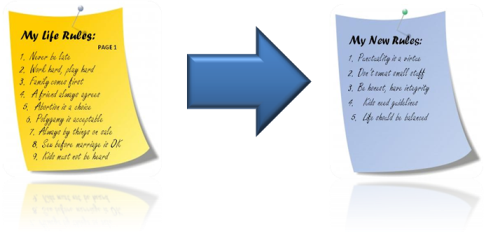Holiday Happiness:
(Part 3 - Early December)
 |
During the first two parts of this Holiday Happiness Series we put the holiday season in perspective by looking at the big picture, answering two essential questions to help us consider what would (or could) make the holidays happy and joyous rather than stressed and frustrating, understanding how kindness and gratitude are scientifically proven to ease the stress of this time of year, and starting to create a “Holiday Happiness Plan” to help guide us through the season. |
So
if you haven’t read the first two installments of the series, read them
now to get up to speed on all this and make a big impact on your
holiday happiness (it’s not really too late). Just click here to read the "early planning" installment (October) and click here to read the next, "countdown" installment (November). Then, return here to read the rest of this installment in the process to a happy holiday season.
Based on what we’ve done so far, is this holiday season a bit smoother
yet? If not, first, maybe you haven’t scheduled your time in the best
way possible. Did you create your “Holiday Happiness Plan”? Did you schedule your down time as suggested? Have you maintained or started an exercise program? If not, make sure to go to the article, Exercise and Happiness by clicking here. Have you used transformational vocabulary yet to reduce your emotional reaction to life’s events and circumstances?
If
not – and if things are starting to get hectic and stressful - please
don’t ignore these tools. They can really help. Keep your mind and
body as fit as possible always - especially during this time of year.
Go back and re-read Parts 1 and 2 of this series again if necessary.
Because now, in Part 3 of this “Holiday Happiness” series, we want to
explore a couple of psychological issues associated with the holidays
for many people - rules and neuroassociations - and start to reverse any negative effects these issues may have on your joy and fulfillment at this time of year.
Rules
We all have rules which guide us through life –
or even dictate how we act in our lives and react to circumstances,
situations, and events. Some people have lots of rules and some have
very few (people with less rules are generally happier than people with
lots of rules). Which is it for you? And, as related specifically to
this time of year, do you have lots of rules about the holiday season?
For example, is it a must that you:
- Host several parties at your home?
- Buy nice gifts for all your family members and friends (i.e. spend lots of money)?
- Have your home clean at all times in case guests drop in?
- Attend every party to which you are invited?
- Spend lots of time with family and friends?
- Have the most extensively decorated house on the block?
- Not gain any weight during the season?
- Not get caught up in the “crowds”?
- Not let your work or career suffer?
- Not get involved in the commercialism of the season?
- Maintain strong spiritual or religious activities?
- Teach your children the real meaning of the season?
If the answer to several of these questions is 'yes", then with this many these rules (and "must" rules at that), it could be difficult to enjoy the holidays to the fullest since there are so many opportunities for some (perhaps many) of these rules to be broken (and several are totally out of your control).
Also, with all
these rules, you are certainly placing significant undue pressure on
yourself. It might not even be as much fun since, for example, you
would not allow yourself to be free to eat some of the great holiday
food because you “must not gain weight” or perhaps take a few days off
from work since you “can’t let your ‘work’ suffer”.
Yes,
too many rules can be a negative influence on our holiday happiness,
just as they can be a negative influence on our lives in general (even
if some are quite valid as in the example above).
I can’t get
into this concept of rules in depth here in this “Holiday Happiness”
series, so I will just say that, if you feel you are stressed and
anxious every year at this time, consider whether your rules about the
holiday season are having an effect on your enjoyment of this time of
year (for more information on the subject of rules click here).
And
if you do have lots of rules related to the holidays, it’s essential
for you to eliminate or change some of those rules if you want to enjoy
the season more, as represented by this graphic:

While that’s not usually an easy task
(remember, these are deep-seeded, psychologically-based issues), it can
be done. Sometimes it takes a few years of focus and effort to make the
desired changes, but some rules can be changed almost immediately for a
quick effect (in other words, it's not too late for this year).
For
example, let’s say one of your rules is that “the holidays are only
spiritual and family connections and that the commercialism of the
season must be avoided”. While this may be true to some extent, the
fact is, shopping, partying, gift-giving, and “feasting” are all part of
the holiday process these days. And it is possible to enjoy this
aspect of the season without getting caught up in it – or spending too
much money. But if you dread the holidays – and are miserable during
this time of the year because of this rule - you can either stick to
your rule and remain somewhat miserable or you can change your rule to
something like, “the holidays are a great time for spiritual and family
connection and also an opportunity to engage in the stimulating
non-spiritual aspects of the season”. [NOTE: If you have strict rules
about the holidays, but they don’t affect your happiness negatively, you
don’t necessarily have to change it – unless, for example, it affects
someone you love negatively].
If you decide to make a difference in your happiness during the holidays and change some of your rules, take these steps:
- Write down your current rules about the holidays on a piece of paper;
- Once you’ve written them down, look at the ones causing you the most stress or pain during the holidays and physically cross it out on the paper. Then, write down a new rule related to the old rule (preferably as a more flexible “guideline”);
- Then (and I know this may sound weird to some of you), close your eyes and think about your new rule (guideline) for a few minutes. [NOTE: During Tony Robbins’ Date With Destiny program, my wife, Jill, went through this process to change some of her rules about life and she actually started crying when she crossed out her old rule. It can have that “real” of an effect).
Do this for any
holiday-related rule that might be keeping you from enjoying the season
more and you will likely have a completely different, more positive
experience.

Neuroassociations
Another psychological factor which can influence our holiday happiness is the concept of neuroassociations.
Neuroassociations, like rules, can be very deep-seeded issues originating from the time we were born.
We
all experience neuroassociations. My favorite example of a
neuroassociation, which most of us experience at some point, is when we
hear a song from the past, and we immediately associate the song
with a great time in our life. When you hear that song, you sometimes
get a smile on your face and start to “feel” yourself back in college –
or whenever it was that the song was playing. It’s an association that
is “wired” (neurologically) into our brain. Various associations
in our brains can make us react emotionally to certain events during
our lives. And if, for some reason, there is a negative
neuroassociation in your subconscious (or even conscious) mind about the
holidays, it will be difficult to enjoy this time of year.
So, what do you do about it? Again, it’s not an easy solution. Some people need counseling for this (contact The Neighborhood Shrink if you feel the need to get outside help on this). Or, you can attempt to deal with it yourself. Here's how:
Let’s
say, for example, you have a negative neuroassociation to the holidays
partly because every year when you were young, your parents had major
arguments at this time of year because of the financial stress they were
under. You obviously can’t change the past. It happened. So now, you
have to replace that negative neuroassociation with something much more
positive - so positive that it overpowers your negative emotions.
Maybe, for example, you create your own “family holiday tradition”. You
might bring your family together and sing Christmas carols every night
(if Christmas is your holiday) from December 15th until the 25th.
First, if you have children, it will create a positive neuroassociation
for them (and it's highly likely they'll carry on the tradition when
they’re grown up) and second, it will help “dilute” (and perhaps
eventually eliminate) your negative neuroassociation. You will enjoy the holidays more by doing this.
This
is just one simple example and there are many more. So consider your
rules and neuroassociations. Evaluate whether they are affecting your
ability to enjoy this time of year. And realize, the stress of the
holiday season will certainly still be there, and it may get intense at
times. We just need to be able to deal with those stresses well, using
the tools and strategies suggested in this series (among other
strategies found here at BeHappy101.com), with the big picture goal of being able to look back over the holiday season with an overall sense of pleasure and joy.
So
– and this is an important point - it doesn’t mean everything goes
smoothly and there is no stress. It means being able to deal with the
circumstances and these emotions, and doing things – proactively – that
will allow you to enjoy the process and look back over the holidays with
a positive feeling.
So now, with the holiday season upon us, we need to take the next step in implementing the BeHappy! holiday process to really reduce the anxiety and achieve that big picture goal. That is: address – and alter – your holiday rules, and create positive neuroassociations to help enjoy the holiday season more and more.
Click
on the links in this article to get a better understanding of each of these
powerful techniques for making your holidays happier. Take the actions
described, and make sure to read the rest of the BeHappy! Holiday Happiness Series as you go through the holiday season.
BeHappy! my friends
PLEASE CONSIDER...
If the information on this site helps you and you'd like to make a donation to BeHappy101.com (to help make others happy), please click on the button below to make a contribution. The amount you donate is entirely up to you. A portion will used to contribute to the happiness of others and is greatly appreciated. [WHY DONATE?] |

PLEASE CONSIDER...
If the information on this site helps you and you'd like to make a donation to BeHappy101.com (to help make others happy), please click on the button below to make a contribution. The amount you donate is entirely up to you. A portion will used to contribute to the happiness of others and is greatly appreciated. [WHY DONATE?] |



 I'm Jimmy, the founder and creator of this site and the whole BeHappy! system. My life's purpose is to be a positive, creative force for health and happiness and through this website, my books, coaching, and happiness-building programs, I intend to help as many people as possible live their happiest possible lives.
I'm Jimmy, the founder and creator of this site and the whole BeHappy! system. My life's purpose is to be a positive, creative force for health and happiness and through this website, my books, coaching, and happiness-building programs, I intend to help as many people as possible live their happiest possible lives.